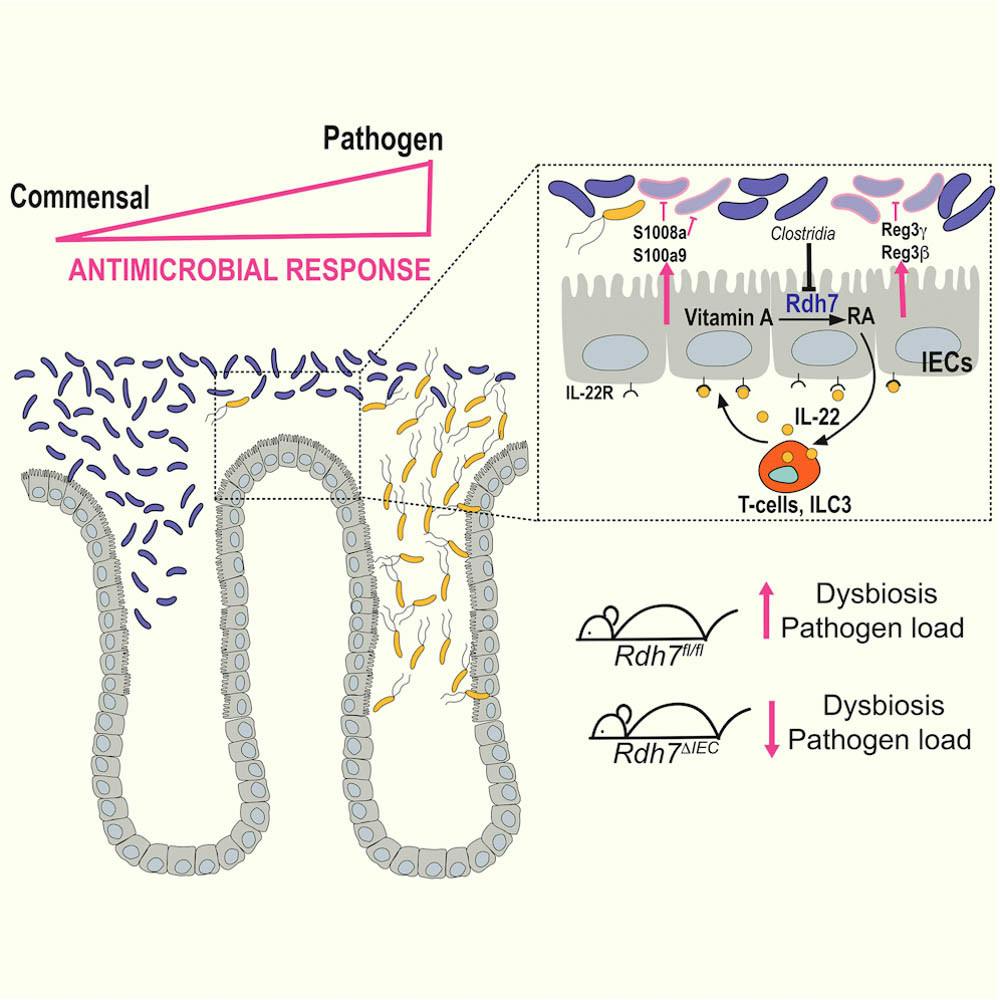Researchers at the University and the University of Washington have found new ways that vitamin homeostasis and bacteria in the gut microbiome can help protect their hosts from the spread of pathogens and help prevent inflammatory diseases like Crohn’s, according to a study published Dec. 18.
The study showed that Vitamin A metabolism plays a key role in many immune processes. Given that vitamin A deficiency is a concern in some developing countries and other parts of the world, these findings may carry global health policy implications. In addition, bacteria in the intestines protect the host from the spread of pathogens and from microbial dysbiosis — the scientific term for microbial imbalance, according to the study. In general, the study emphasized the importance of a balanced microbiome and vitamin A metabolism in many immune processes.
The researchers examined the gut microbiome — the bacteria inside of the intestines — in a two-part study using mice as model organisms, as mice have immune systems similar to human beings. Shipra Vaishnava, assistant professor of molecular microbiology and immunology and a lead researcher on the study, hosts a facility that maintains mice in a sterile environment. Researchers used this gnotobiotic facility — the first of its kind at Brown, according to Postdoctoral Research Associate and study researcher Namrata Iyer — to observe mice with and without microbes to understand the ways microbes in the gut impact vitamin A processing. After observing the mice, researchers were able to isolate genes that played a role in the relationship between microbes and vitamin A — ultimately selecting a singular gene to study in the mice.
According to evidence found by researcher Mayara Grizotte-Lake GS, too much vitamin A metabolized in the system could react too strongly, resulting in infections. Previous research had established that the gut microbiome affected the absorption and metabolism of many vitamins in the gut, but few studies had focused on vitamin A. In addition, while researchers had known about the importance of the bacteria and its role in responding to microbes in the gut, they could not explain why.
“This study helps explain that once open question,” Iyer said.
The research collaboration began after Vaishnava reached out to Nina Isoherranen, an associate professor of pharmaceutics at the University of Washington. The two, along with researchers Grizotte-Lake, Iyer, Kellyanne Duncan GS, Senior Fellow Post-Doc at the University of Washington Guo Zhong and Jay Kirkwood, sought this research to build a better understating of bacteria’s role in vitamin metabolism. With Vaishnava and Isoherranen supervising the project, Grizotte-Lake and the researchers at the University of Washington heavily conducted the first part of the study, while Iyer focused on the second part.
The researchers’ diverse backgrounds provided an interdisciplinary approach to the study. Vaishnava, for instance, brought her expertise and previous research on the “good microbes” in the gut and their significance regarding immune functions. Meanwhile, Isoherranen contributed her expertise and previous research on vitamin A through her academic teaching and supervision of the experiment. Grizotte-Lake and Iyer focused on conducting the two parts of the experiment respectively; researchers Kirkwood and Zhou were key figures in establishing the techniques of the experiment.
It is still unknown whether this research can be translated to humans, Zhong wrote in an email to The Herald. “It provides the foundation for future studies to explore the relationship among microbiome, vitamin A homeostasis and diseases in humans,” he added.
Researchers said they are working on a next project. Some next steps include looking at models that overexpress a specific gene of interest and understanding what happens if the gene is not in check.





